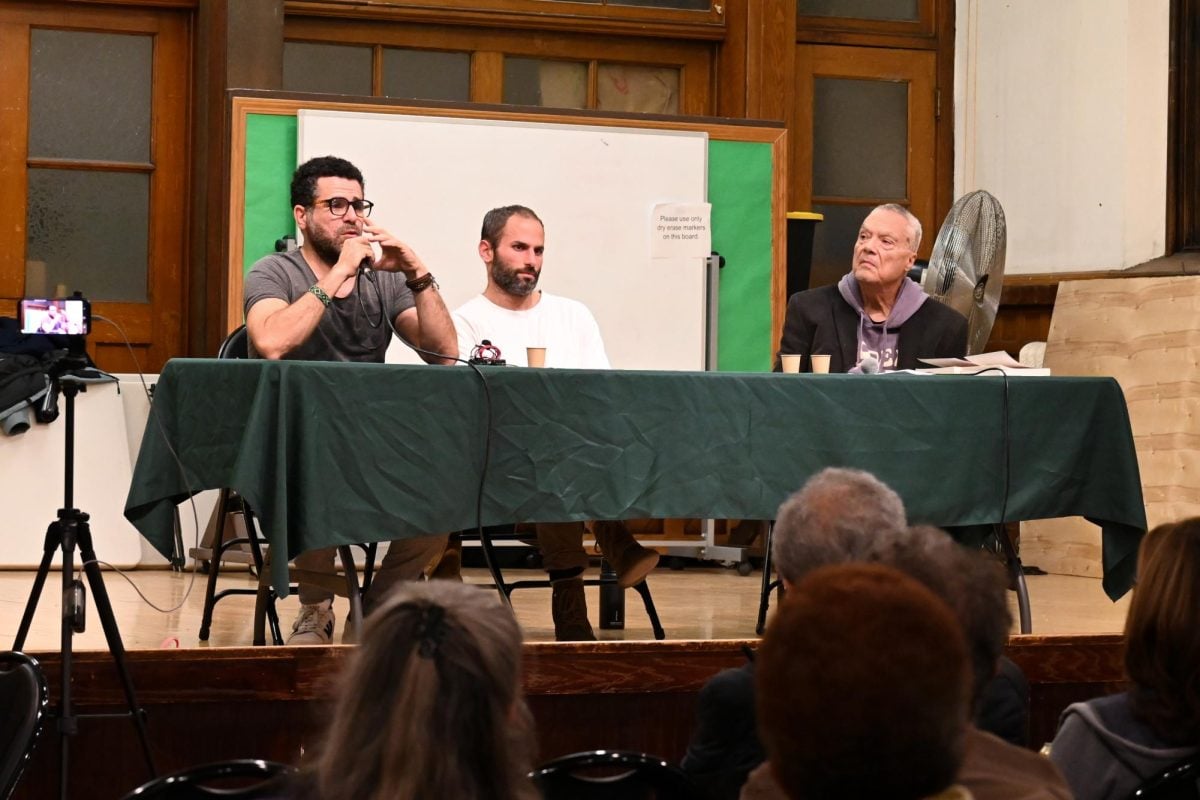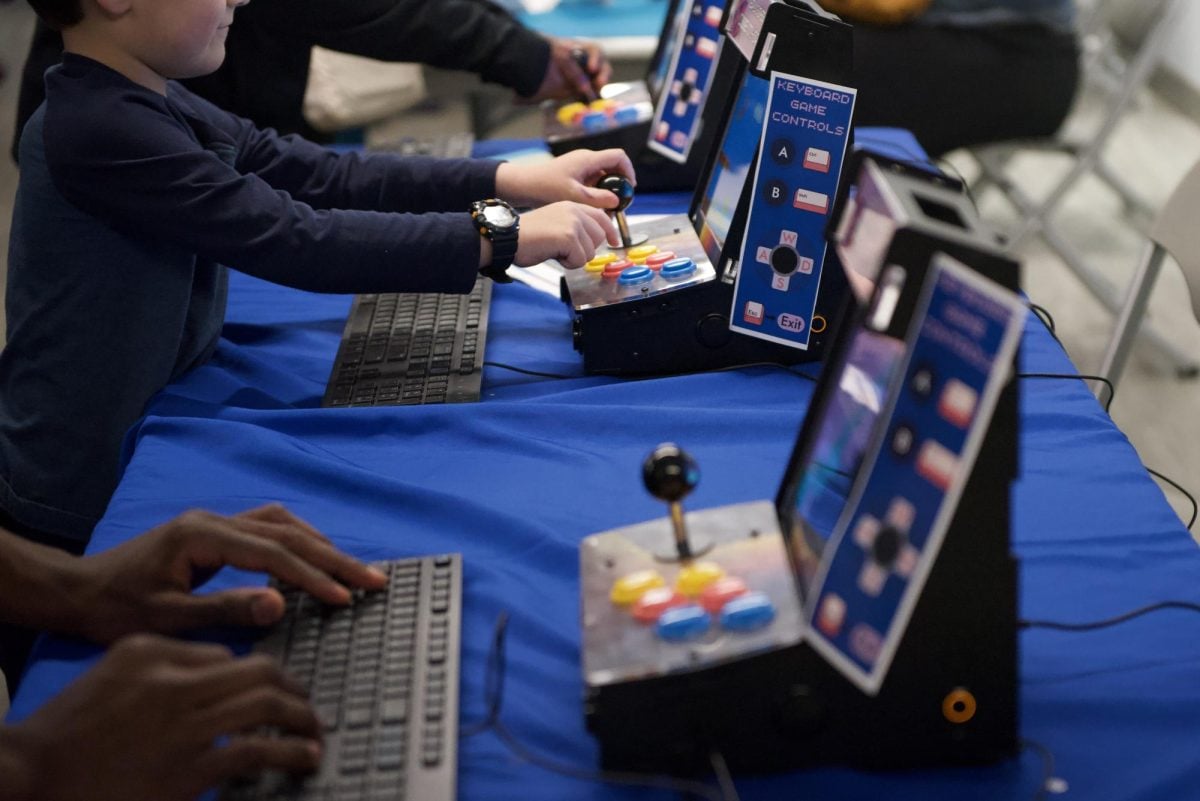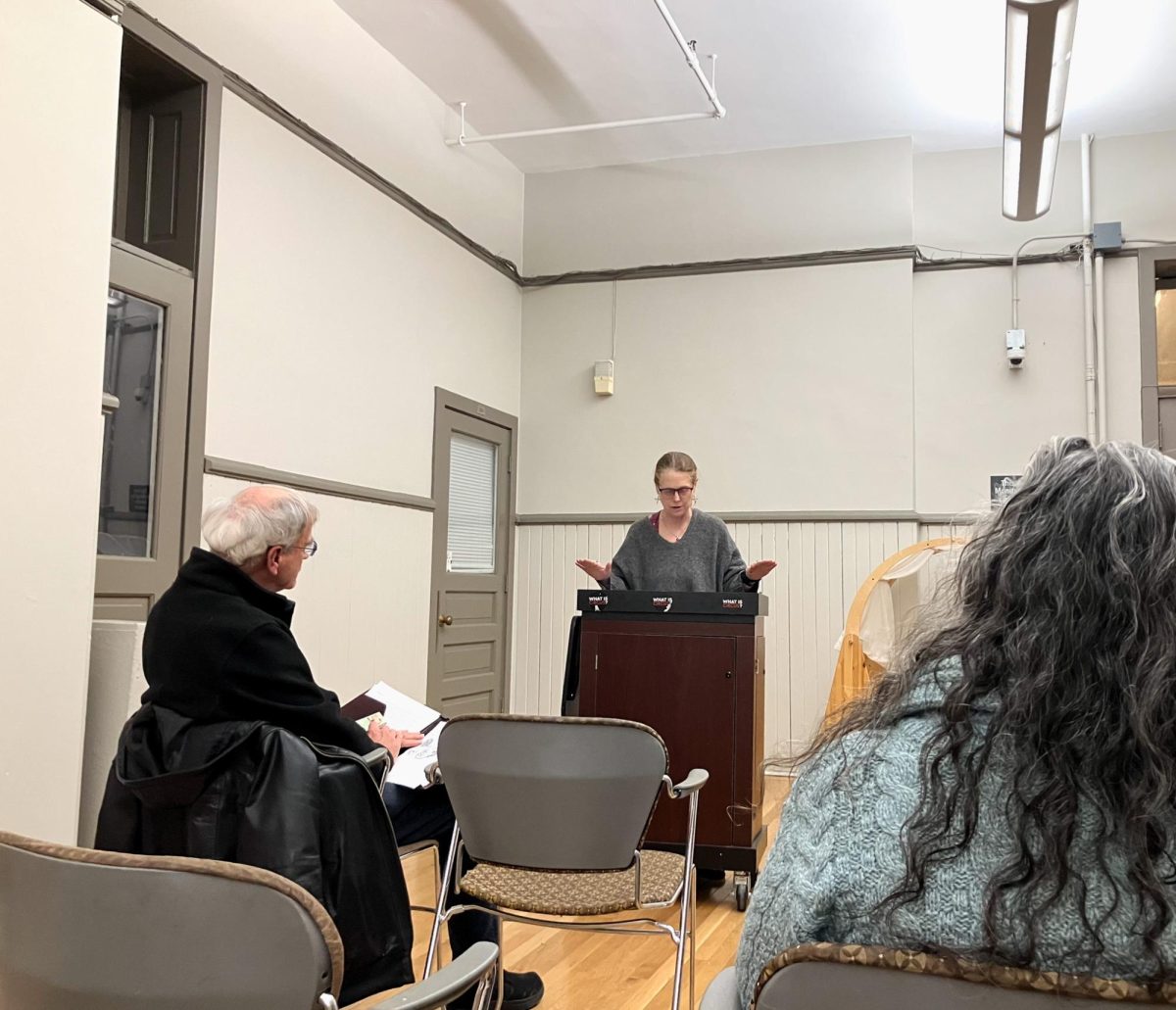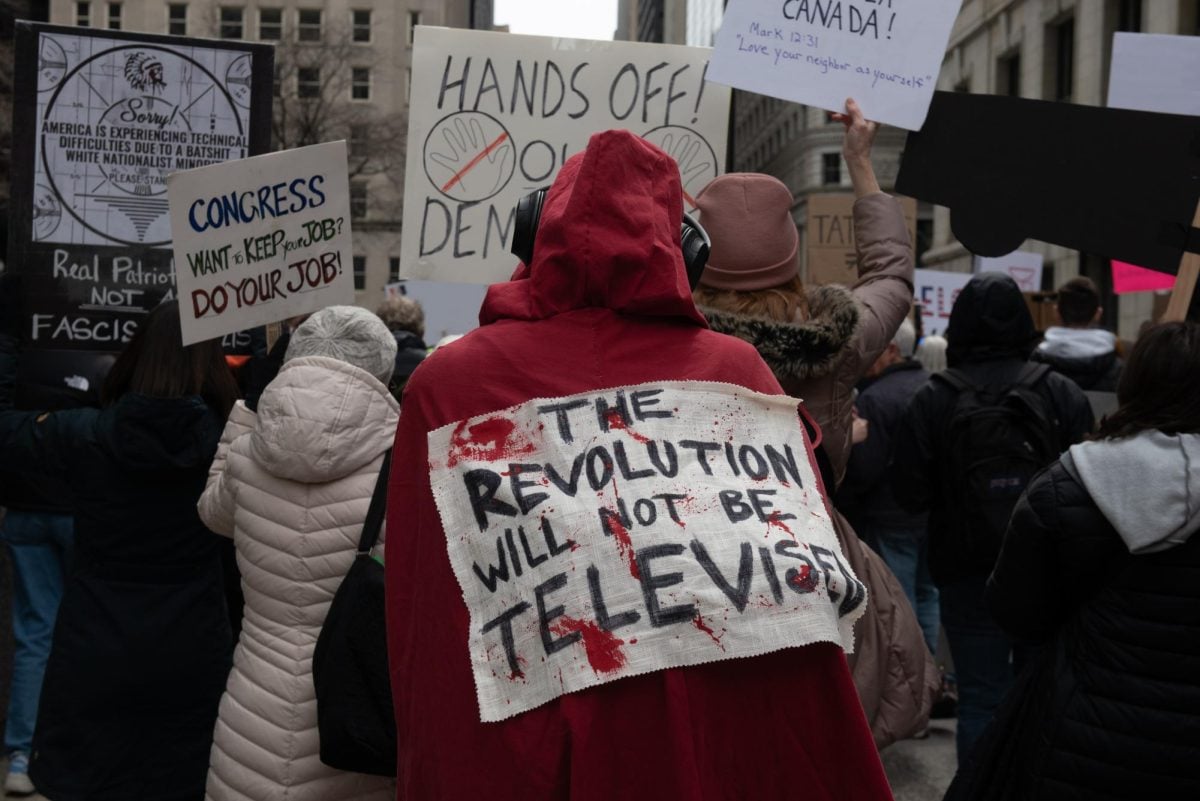Living in a small town outside Tel Aviv, Israel, during the Second Intifada, Israeli peace activist Rotem Levin had only ever heard the word “Palestinian” next to “suicide bomber.” To Palestinian peace activist Osama Iliwat, who grew up in Jericho, Judaism was represented only by fully armed soldiers.
As a part of their international speaking trip aimed at helping people better grasp the Israeli-Palestinian conflict, Levin and Iliwat detailed their personal experiences at the Lake Street Church of Evanston Thursday night. The event was sponsored by Chicago Area Peace Action and IfNotNow Chicago.
Former Evanston resident and author Donald Wagner introduced Levin and Iliwat at the event, titled “Salt of the Earth: A Conversation Between a Palestinian and an Israeli Peace Activist.” Then, one at a time, they told their stories.
Throughout their journeys, they each came to understand the root of the animosity between Israelis and Palestinians as a lack of interaction between the two groups.
“They were working hard to show me how much weapons they have,” Iliwat said. “But they never tried to create a place or a space for me to meet the Jewish people as human beings.”
Levin said he grew up in an environment where he was “afraid” of Palestinians because he had never seen them and only knew them through the news.
Levin said he grew up knowing he would become a soldier at 18, just like everybody else. Israel mandates that all citizens and residents enroll in a draft. Levin knew that in the future, he would be evaluated based on the prestige of his unit. His first interview question when he applied to medical school in Israel was, “Where did you serve?”
After two years of intense army training, Levin’s unit was taken to a Palestinian village in the West Bank. This was the first time he had ever been there, he said. The commander tasked him and another soldier with throwing shock grenades into a yard, and he did as he was told.
“It was the first time I feel I’m not aligned with what I was doing,” Levin said. “There was some kind of disconnection here inside that I cannot forget this night. This was maybe the first crack in my understanding of what is actually happening in my homeland.”
After Levin was released from the army, a friend told him that he was going to Germany on a program to meet Palestinians from the West Bank. Levin was excited about the idea because he had never met Palestinians before, he said. He had always been told the West Bank was “dangerous,” but he realized he was the one who had used violence when he was there, he said.
In the program, he met a group of around 20 Palestinians who had mostly been raised in refugee camps. When the group told him about their origins, he was confused, because he had never heard of any refugee camps, he said. They explained that their grandparents had been expelled from their homes when Israel was established.
“Honestly, for me, it was too much, because I didn’t understand, how is it possible that the gap between the narratives is so big?” Levin asked. “How can I live all my life, 23 years on this land, my homeland, and never hear about Nakba or refugee camps?”
Iliwat remembers his grandmother’s stories of the Nakba, when she was forced to leave her house. He grew up “terrified” of Jewish people, he said.
“One time, they break into our house and they took my father violently outside. I was almost 13,” Iliwat said. “The person who I’m supposed to feel secure when he is around the house is beaten and abused by who? By the Jewish people.”
Years later, Iliwat was in a café that was stormed by Israeli soldiers who shot people in front of his eyes, he said. Iliwat was arrested for three days, handcuffed and blindfolded, he said.
He came home to find his mother crying because she thought he was dead, he said.
“When I saw my mom in this situation, the day after, I decided to join the resistance again,” Iliwat said. “I said, ‘If my mom will cry, she will not be the only one. They will cry with her too. I will hurt them first.’”
In 2010, Iliwat asked a friend he ran into for a ride home because it was snowing. The friend said yes but was going to a peace conference first, Iliwat said. There, Iliwat noticed a man with a Kippah on his head. He was confused, because he didn’t know Jewish people could believe in peace, he said.
Iliwat said that while waiting outside, he heard a Jewish woman say she didn’t want to contribute to the conflict. He said it was a crack in his narrative.
“I went back home for three months thinking and trying to convince myself that it’s possible to be a good Jew,” Iliwat said. “And I decided to go back. Maybe to find the second good Jew.”
He began to have conversations with Israelis and eventually founded Visit Palestine, a group that shows Israelis around the West Bank, he said. Israelis and Palestinians don’t understand each other because they don’t live in the same places or speak the same language, he said.
Iliwat and Levin started their current speaking tour about a week after the Oct. 7 Hamas attack on Israel that killed about 1,200 Israelis, according to Israeli officials. Israel’s ensuing military campaign in Gaza has killed more than 41,000 Palestinians, according to Palestinian officials.
Thursday’s event was also the seventh event the Lake Street Church has offered on the conflict since Oct. 7.
“(Peace) should happen by meeting people, by bringing people to listen to each other and each other’s narratives and each other’s fears and each other’s histories,” Iliwat said.
Email: femihorrall2027@u.northwestern.edu
Email: naomitaxay2027@u.northwestern.edu
Related Stories:
— SJP honors lives lost in Israel-Hamas War at vigil
— JVP hosts Tashlich to honor lives lost in Palestine and Israel



















